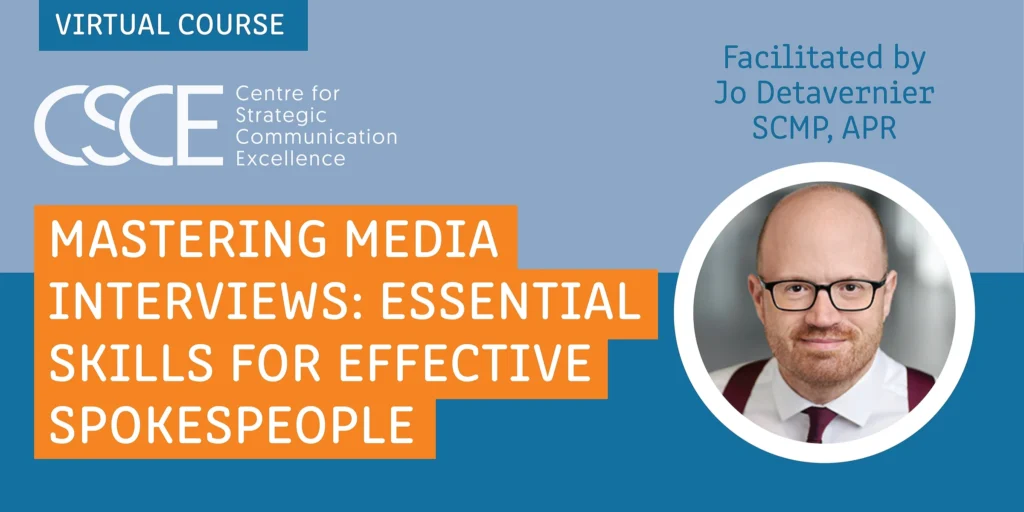Few people in the communication field today will stay with a single company for their whole career. And yet, two generations ago leaving a position after six to 12 months would have been considered insane. Bearing in mind this dichotomy and the recent volatile trends in employment, is it any wonder that people are asking themselves “Should I stay or should I go?” In part one of a two part series, John Clemons, M.S. APR, ABC, IABC Fellow shares advice on managing your career.
It’s tough out there – and getting tougher. The global economy is faltering, the stock market has reached new lows and still hasn’t fully recovered, and businesses are turning inward, regrouping, focusing on their operations, and trying to stay in the black. The fall-out? Many communicators are now finding themselves among literally thousands of unemployed professionals.
There are some guidelines you should keep in mind and practice to avoid potential tough times. Let’s concentrate on two specific areas: getting the job you want and what to do once you have it. The advice I am about to share is based on personal experience and conversations with professional colleagues, executive recruiters, and the recently unemployed.
What is your motivation for moving?
When you start thinking about the job that you want, you need to compare how it’s similar and how it’s different from the job you already have. This exercise will force you to evaluate where you are and where you want to go. More importantly, why those places are different.
Make sure this assessment is as objective as it possibly can be and consider comments colleagues have made about the position, the department, or the company you share. Then, once you have compared and contrasted your present job with your ideal job, review your skills.
Skills and desires
In seeking your next job, realize that you have to be honest with yourself and take inventory of what you can offer a prospective employer. Realistically assessing your skills, you may discover, for example, that you need to hone your speechwriting. Would it be fair of you to seek a position that requires speechwriting? You may get the job but then what? Unless the organization that hired you is willing to immediately invest in your training, you are already risking failure or a lacklustre performance. Part of finding the right job for you is knowing what you can do well and what you want to do. Furthermore, you need to be aware of what you still need to learn.
If you realize the job you want requires a lot of the skills you do not have, then you need to gain, or maybe just improve, those skills. Look to gain or improve those skills at the job you currently possess, or externally in your own time if that’s not possible. If you are able to improve your skills in the place in which you currently work, you have achieved two things:
- You have increased your value to your current employer and as a result may see new career pathways or a promotion headed your way.
- You have moved yourself closer to being read to go for that ideal job.
If you are content with your present career situation, then developing new skills may not be that direction you want to take – everything is working well for you. However, if you want to move up the organizational ladder, you will have to challenge yourself, and seek higher professional ground for continued career success.
That decision is yours alone.
Should I move?
Is there enough evidence to support your making a move? If you are debating a career move, ask yourself the following questions:
- Am I in a dead-end job?
- Are decisions about my area of responsibility being made without me
- Are consultants being hired to do my job?
- Am I really making a difference in the success of the business?
- Does this organization mesh with my own sense of self and personal values (i.e., socially responsible, collaborative decision-making, innovative, high energy)?
Your answers to the questions above will dictate how quickly you need to decide on looking for another job – or not. Sometimes you can change a work situation if you identify problems early. On the other hand, I think we are all intuitive enough when it is time to move. You should be in control of that decision to prevent your employer from making it for you! You should also avoid job-hopping for the sake of increased compensation alone.
Thrive in your environment
The primary reason to change jobs is to progress along your desired career path. Plan each career step carefully and think about what works best for you. You may discover that you thrive in large, global organizations that provide you with a wealth of resources, travel and autonomy. Maybe you prefer a medium-sized domestic business that gives you an opportunity to work closely with senior management. New, face-paced companies such as dot-coms (or dot-bombs!), offer different challenges and opportunities, but maybe the world of non-profit is what suits your best. Be aware that your preferences regarding environment may change as you gain experience. Your desired environment is something you need to think about and correlate with your personality.
Evaluate the work you’ve done
As you progress along your career path, carefully evaluate the total body of work that you have put together – your next employer sure will. The professional snapshot you present will tell your next employer whether you have managed your career with progressive forethought and planning or whether you have taken whatever position was available because it suited you at the time. Whatever the case, be ready to explain each career move.
Thoughtful interview questions
While interviewing, you will do yourself a disservice if you do not ask just as many questions as the person interviewing you. Be prepared with a set of relevant questions, such as:
- Will I have a budget? You need to know what financial resources you will have to help you meet your performance objectives/goals.
- How long has the current senior management team been in place? Is there executive and performance stability? You want to work for a company that has stability in it’s executive management ranks.
- Will I be able to explore other internal opportunities as they arise? You may want to keep your internal job options open. Exposure to other areas can lead to new career possibilities.
- Will I have a support team? You want to know up front if you have to fly solo. If you do, you may not be able to show your value until you have staff or temporary assistance (i.e., consultant services, freelance, agency).
And finally, the critical question that I have discovered few communicators ask:
What are my critical success factors? Get the person interviewing you to define success in your area. If the answer to the question cannot be articulated satisfactorily, you may be in for a rocky time. Without an answer to that question, you have no chance of knowing the performance or results that will earn you recognition, a promotion, or increased compensation.
Proving yourself
Making a move is an emotional experience, and once you’ve got the job, you think to yourself – I have to prove myself all over again. Yes, you do. And there are other considerations as well. There are new players who will influence your work experience. You will have to build new relationships to get your job done. You will have to do some influencing as well, showing co-workers and senior executives that you can do the job, bring value to the organization, and “fit” in this new culture to which you now belong. Proving yourself is never easy but you’ve done it. You can do it again.
Executive Recruitment Tips
- If you find yourself seeking a position through an executive recruiter, brace yourself for an experience that can range from sublime to sheer madness
- There are many reputable head hunters who are credible, successful, and really know what they’re doing. Once your path crosses with these particular recruiters, cultivate relationships to work on your behalf. If one of them calls, take the time to speak with him or her, send your updated resume, and stay in touch. When the right opening becomes available, you will be at the top of the list of candidates.
- Once you do have a good working relationship with a recruiter, be clear about your job needs – range of compensation desired, geographic location, growth opportunities, contact and counsel opportunities with executive management, flexible work hours, tuition reimbursement, etc.
- Understand that you shouldn’t be too eager to accept the first job offer presented to you and shouldn’t feel obligated to accept a job when a recruiter tells you the job “is perfect for you.” If you’re not interested in a position, recommend qualified candidates to the recruiter. They appreciate solid referrals and will come back when a position is right for you.
- Let the recruiter represent you and gather information on your behalf before accepting a position. Realize that the recruiter serves as a matchmaker and that the process before a final job offer will more than likely take some time. There are other candidates who are being courted simultaneously, so be patient. When you do receive a job offer, make sure you get the final offer in writing.
- One thing to remember not to do when you are dealing with an executive recruiter is to contact a prospective employer on your own. To do so is a major faux pas that can quickly sever a relationship with an executive recruiter.
- You should develop a good list of recruiters and stay in touch with them. Let them know when you have been promoted, written articles for external publications, and moved on to a new job.
- Regardless of how you get your next job, remember to negotiate, negotiate, negotiate!






